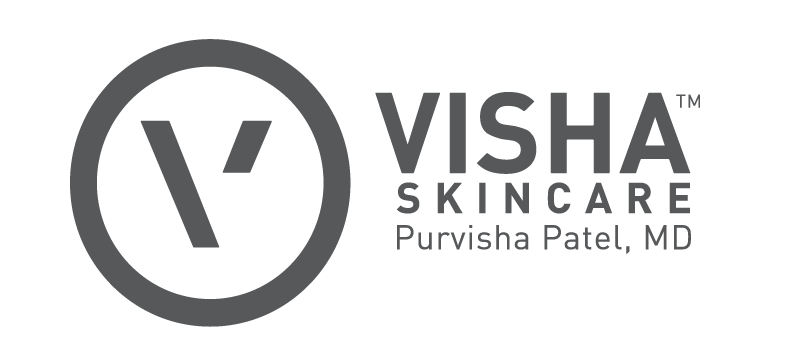
Dermstore.com posted "Dermatologist Answers: What Is Hydroquinone and Is It Safe to Use?" featuring Visha Skincare Brand founder Dr. Purvisha Patel.
In the article, Dr. Purvisha Patel shares her expertise on hydroquinone in skincare, including the key benefits and proper usage of the ingredient.
In the quest to lighten those dreaded dark spots on your face from hyperpigmentation, age spots, or freckles, you may have encountered an ingredient called hydroquinone. If you haven’t heard of or tried it before, it’s a synthetic organic compound and skin brightening agent present in many brightening serums and creams that promises to lighten dark patches. While some dermatologists recommend it as an effective way to address hyperpigmentation and even skin tone, it’s not without controversy. In fact, it’s already banned in the E.U., Japan, Australia and high concentrations of it are only available by prescription in the United States and Canada. So is hydroquinone your skin’s friend or foe? Read on.
Hydroquinone 101
What is hydroquinone, exactly? “Hydroquinone is a common ingredient used in skin care to lighten the skin or get rid of dark spots or discoloration,” explains Dr. Purvisha Patel, a board-certified dermatologist in Tennessee and founder of Visha Skincare. “As we age, people of all skin types get areas of discoloration either from the sun or as the form of skin darkening from scaring. Hydroquinone can be used in strong percentages that are prescription and in lower percentages over the counter to lighten age spots, sun spots and scarring,” she adds.
Proper Use and Safety
In the United States, you can find hydroquinone in products over the counter in two percent (low concentration) formulas and your dermatologist can write you a prescription for four percent formulas and higher. (Use of those higher concentrations need to be closely monitored by your doctor, though.) “It is safe to use in two percent and four percent formulations twice a day for 12 weeks max,” says Patel. “The skin then needs a break from the chemical,” she notes. Also, sunscreen with at least SPF 30 is a must every day you’re using it and even after receiving treatment to counter the skin from getting darker again, she warns.
